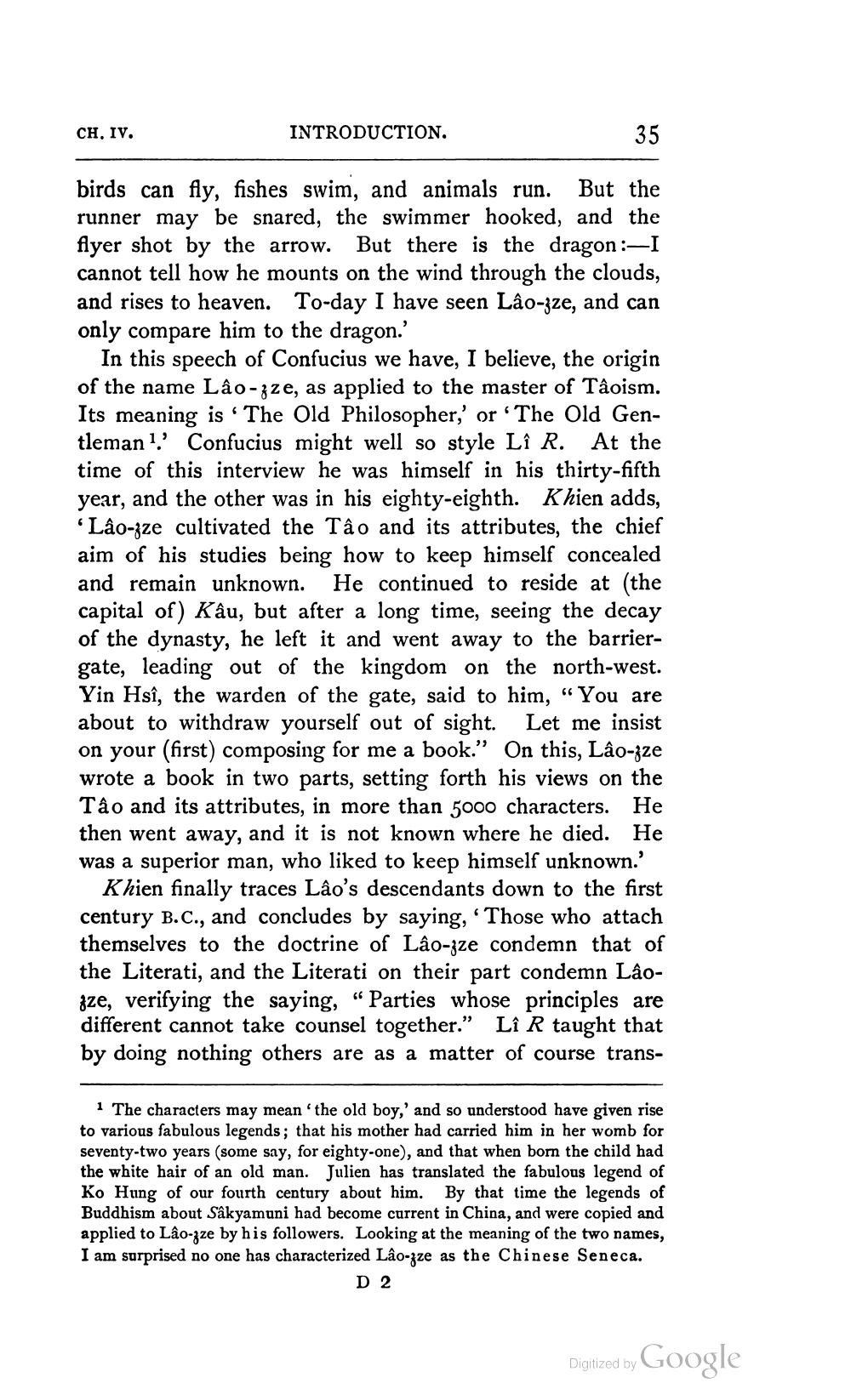________________
CH. IV.
INTRODUCTION.
35
birds can fly, fishes swim, and animals run. But the runner may be snared, the swimmer hooked, and the flyer shot by the arrow. But there is the dragon :—I cannot tell how he mounts on the wind through the clouds, and rises to heaven. To-day I have seen Lâo-zze, and can only compare him to the dragon.'
In this speech of Confucius we have, I believe, the origin of the name Lâo-zze, as applied to the master of Taoism. Its meaning is 'The Old Philosopher,' or 'The Old Gentleman 1.' Confucius might well so style Lî R. At the time of this interview he was himself in his thirty-fifth year, and the other was in his eighty-eighth. Khien adds, 'Lâo-zze cultivated the Tâo and its attributes, the chief aim of his studies being how to keep himself concealed and remain unknown. He continued to reside at (the capital of) Kâu, but after a long time, seeing the decay of the dynasty, he left it and went away to the barriergate, leading out of the kingdom on the north-west. Yin Hsî, the warden of the gate, said to him, “You are about to withdraw yourself out of sight. Let me insist on your (first) composing for me a book.” On this, Lâo-zze wrote a book in two parts, setting forth his views on the Tâo and its attributes, in more than 5000 characters. He then went away, and it is not known where he died. He was a superior man, who liked to keep himself unknown.'
Khien finally traces Lâo's descendants down to the first century B.C., and concludes by saying, 'Those who attach themselves to the doctrine of Lâo-zze condemn that of the Literati, and the Literati on their part condemn Lâozze, verifying the saying, “Parties whose principles are different cannot take counsel together.” Lî R taught that by doing nothing others are as a matter of course trans
1 The characters may mean the old boy,' and so understood have given rise to various fabulous legends; that his mother had carried him in her womb for seventy-two years (some say, for eighty-one), and that when born the child had the white hair of an old man. Julien has translated the fabulous legend of Ko Hung of our fourth century about him. By that time the legends of Buddhism about Sâkyamuni had become current in China, and were copied and applied to Lâo-zze by his followers. Looking at the meaning of the two names, I am surprised no one has characterized Lâo-zze as the Chinese Seneca.
D 2
Digitized by
Digitized by Google




